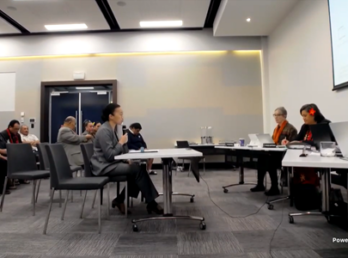Undisclosed principal liability – When might a director be personally responsible for company obligations? articles
Date
17 Mar 2021
Related Expertise
It is a well-established principle in contract law that parties to a contract must be defined, ascertained and existing at the time the contract is entered into. While this may sound rather obvious, Rebnik Properties Ltd & Anor v Dobbs & Anor and Aluminium Repairs Ltd & Anor v Ring [2020] NZHC 3494 reminds us how this may somehow slip through the cracks.[1]
The key issue in the case was whether the price for the work done was a ‘reasonable price’ or whether there was overcharging justifying a refund of money paid. However, this article focuses on another issue for the court, which was:
- who, if anyone, was liable if overcharging was established; and
- specifically, could a person using a trading name be personally liable if they did not disclose that they were representing a company at the time of contracting.
The court’s answer was: “Yes, both parties can be liable”.
The case contains helpful discussion of the agency law concept of “undisclosed principal”. It is a useful reminder to contracting parties of the risks they run if aspects of their contractual relationship lack clarity, and, how a carefully documented contract at the outset can reduce risk and save significant time, cost and argument to resolve matters further down the track.
The Facts:
Mr Dobbs carried out remedial construction work on Mr Ring’s St Heliers home from April 2011 to February 2014 pursuant to an informal contract which was formed by a combination of emails, oral discussions and conduct.
Dealings initially began in 2007, when Mr Ring decided he wanted some maintenance work done on his property. Mr Dobbs who, at the time, was trading as ‘Aluminum Repairs’ visited Mr Ring’s property, and provided him with a quote in the form of an invoice which was in the name ‘Aluminum Repairs’ and noted Mr Dobbs’ personal GST number. While the quote included a business email address, Mr Dobbs provided Mr Ring with his personal email address.
Mr Ring accepted the quote. Payments were made out to ‘Aluminum Repairs’ and into a bank account which was in the name ‘T J Dobbs’.
Mr Dobbs incorporated Aluminum Repairs Limited (‘ARL’) on 20 September 2007.
Despite the company’s incorporation, quotes to Mr Ring remained in the same format as that issued to him back in 2007.
In August 2013, a new invoicing system was implemented for ARL. The invoices and covering emails sent to Mr Ring after 4 August 2013 now referred to ‘Aluminum Repairs Ltd’. Mr Ring did not realise the additional ‘Ltd’.
Mr Ring and Mr Dobbs eventually expressed their ‘mutual discontent’ with each other. Mr Ring began querying some of the invoices. On 7 February 2014, Mr Ring terminated the agreement effective immediately.
In 2015, Mr Ring transferred the property to Rebnik Properties Limited (‘Rebnik’). Mr Ring also assigned to Rebnik all his rights of action against anyone who carried out work on the property.
The pleadings
Rebnik and Mr Ring sued for money had and received on the basis that Mr Dobbs (or alternatively, ARL) would be unjustly enriched if they were to retain the excess of what Mr Ring paid minus what was a ‘fair and reasonable price’. The second cause of action against Mr Dobbs (or alternatively, ARL) was for breach of contract.
Mr Dobbs and ARL counter-sued Rebnik and Mr Ring for recovery of payment for the two final invoices which Mr Ring refused to pay. Mr Ring claimed that he was overcharged and therefore did not owe anything to Mr Dobbs or ARL.
Issues
The first issue before the court was, assuming there was liability to Rebnik, which of the defendants, Mr Dobbs or ARL, was liable?
Rebnik and Mr Ring’s position was that Mr Dobbs was liable under both causes of action, because:
- Mr Ring contracted with Mr Dobbs (and therefore Mr Dobbs was liable for breach of contract); and
- The money was paid to Mr Dobbs (and therefore Mr Dobbs was liable for money had and received).
Mr Dobbs and ARL of course denied liability but argued that, if any liability did arise, only ARL was liable. Their reasoning was that Mr Dobbs entered into the contact and received money as an agent for ARL. The contract was therefore between Mr Ring and ARL.
While the parties posed the question as a matter of who Mr Ring entered into the contract with, Justice Campbell respectfully advised that this was not the correct way to frame the issue. There was no question that Mr Dobbs entered into the contract and received money as an agent of ARL.
However, this does not necessarily mean that only ARL, and not Mr Dobbs, was liable. An agent will sometimes also be liable under contract if they have entered into the contract on behalf of a principal. So, the real question to ask was whether Mr Dobbs was also (in addition to ARL) liable to Rebnik?
Are both principal and agent liable?
Whether an agent will be liable alongside its principal turns on whether the agent disclosed their agency to the third party at the time the contract was entered into.
- Disclosed principal: where an agent enters into a contract on behalf of a principal, and discloses to the third party that they are an agent for the principal, the principal (and not the agent) will be liable on contract.
- Undisclosed principal: where an agent enters into a contract on behalf of a principal but does not disclose to the third party when entering into the contract that they are acting as an agent, then both the principal and agent are liable under contract. In this situation, if the third party subsequently discovers the agency relationship, the third party may sue either or both.
Similar rules apply to restitutionary liability for money had and received, in that an agent that receives money is generally not liable to repay the money to a third party unless the agent entered into the contract personally (with the principal undisclosed).
So, the real question was whether, before or at the time the contract was entered into, Mr Dobbs disclosed clearly to Mr Ring that he was acting as an agent of ARL.
The undisclosed principal test
The legal test is to ask what would a reasonable person, furnished with the relevant information, conclude? The test is objective, and the onus is on the agent to disclose the agency. If there is objectively no such disclosure, there is no presumption of constructive notice to the third party ie. there is no onus on the third party to make any further enquires as to agency.
Court’s finding
It was determined that the contract was concluded after ARL’s incorporation, in 2010. There was conflicting evidence as to whether ARL’s incorporation was in fact disclosed to Mr Ring. Mr Dobbs argued that when he sent that first quote to Mr Ring in 2007, he had told Mr Ring orally that he was in the process of incorporating ARL. Mr Ring denied this conversation ever taking place.
Justice Campbell assessed the dealings between Mr Ring and Mr Dobbs and found that, from their first dealings leading up to 2010 when the contract was concluded, there was no disclosure of agency or principal.
“Mr Dobbs ‘gave every objective indication to Mr Ring that he was acting on his own account: he sent an invoice that used a trade name (not a company name); he used an email address that appeared to be a personal one; his emails were merely signed off “troy”; and he asked for payment to be made to a bank account in his own name.”
While Mr Ring and Mr Dobbs were both credible witnesses, Mr Dobbs failed to prove on the balance of probabilities that he disclosed to Mr Ring that he was acting as ARL’s agent in July 2007. The Court was not entirely convinced that a process such as incorporating a company, which takes a matter of a few days, ended up taking Mr Dobbs over two months. Furthermore, all of the emails between Mr Ring and Mr Dobbs even after ARL’s incorporation date indicated that Mr Dobbs was acting on his own account, as none of them mentioned ARL. Even if the Court accepted Mr Dobbs’ evidence that the conversation regarding ARL’s incorporation did take place and it really did take Mr Dobbs two months to incorporate ARL, Mr Dobbs still did not disclose to Mr Ring the process was complete and that he was now operating as ARL’s agent.
Because Mr Dobbs did not disclose to Mr Ring (prior or at the time the contract was entered into) that he was acting as an agent for ARL, if there was any liability to Mr Ring, it followed that Mr Dobbs was liable under contract, and for money had and received.
In his dicta, Justice Campbell says that his decision may have been different if the series of subsequent conduct pleaded by Mr Dobbs “… combined with other circumstances” might have relieved Mr Dobbs (partially or fully) from liability. It is not entirely clear what ‘other circumstances’ means but in these specific facts, the judge considered that:
“If there had been a discrete series of contracts, perhaps those entered into after Mr Dobbs had started sending invoices under ARL’s name could be regarded as contracts solely with ARL. If Mr Ring had been made sufficiently aware by the subsequent conduct that Mr Dobbs was acting on behalf of ARL, perhaps Mr Ring’s continued engagement of Mr Dobbs would have estopped Mr Ring from asserting that Mr Dobbs was from that point personally liable.”
Main take away points
This decision is an expensive reminder for contracting parties to be clear about who they are acting for and contracting with.
To avoid personal liability in a situation like this, directors in a similar position to Mr Dobbs in 2007 – 2010 should be ratifying any pre-incorporation contractions under section 182 and 183 of the Companies Act 1993 and notifying all third parties.
Before entering into a contract, parties, particularly credit managers opening accounts, should:
- if the counterparty is a natural person, verify their identity by sighting their passport or drivers license;
- if the counterparty is a company, check the Companies Office for current company and director details;
- if the counterparty is purporting to enter into a contract as a trustee or a partner, request a copy of the trust or partnership deed and other relevant identification documents (passport, drivers license).
After the contract has been entered into, both parties in the course of their contractual relationship should:
- pay attention to particular features of a quote or invoice such as the bank account name, GST number and contact details provided; and
- have some regular routine checks in place to ensure that client databases and information systems are kept up to date with the essentials (eg. directorship or entity changes).
[1] This dispute resulted in two separate proceedings which were heard together. For simplicity, the judgment refers to Rebnik Properties Ltd and Mike Ring as the plaintiffs, and Troy Dobbs and Aluminium Repairs Ltd as the defendants.
Subscribe
Get insights sent direct to your email.




















